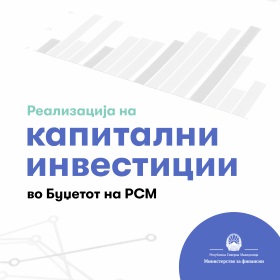4th December 2020, Skopje – Introducing fiscal rules and establishing Fiscal Council – aimed at greater control, medium-term budgeting and establishment of Integrated Financial Management Information System – to the end of better planning, establishing Registry of Public Entities and increased transparency are just part of the provisions contained in the new draft Budget Law. The new Law, the proposals published on the Single National Registry of Regulations and implemented in the Law were discussed at the public debate held Friday at the Ministry of Finance, attended by the Minister of Finance, Fatmir Besimi, representatives of the World Bank, the IMF and the European Commission, as well as experts, representatives of the Chambers of Commerce and the NGOs.

Minister of Finance pointed out that the new Budget Law corresponds to the SMART finance concept, i.e. it is created to provide for a framework for conducting sound, predictable and sustainable fiscal policy and increasing the budget discipline and accountability.
Besimi underlined that fiscal rules – public debt and deficit limits – are implemented in the draft Law, thus strengthening public finance control and management.

As for the Fiscal Council, the Minister emphasized that it is envisaged to be established as an independent body, comprising 3 members proposed by the Macedonian Academy of Sciences and Arts, the State Audit Office and the National Bank, and elected by the Parliament. Its members will be experts in the field of public finances, macroeconomy or economics.
Registry of Public Entities will be established for the first time under the new Law, which will be publicly available, registering all legal entities established directly or indirectly by the state or the municipalities. Thus, comprehensiveness and transparency for all public entities will be provided, regardless of whether they are at central or local level.

The Law goes a step further as regards digitalization of public finances, i.e. introduction of Integrated Financial Management Information System – IFMIS, aimed at improving the control over revenue collection and expenditure execution, from their planning and projections to their final performance and execution.
Minister of Finance pointed out that strengthening the public finance management through a new strategic approach is aimed at accelerating the economic growth from 2-2.5% in the last decade to 4-5% average annual growth in the coming five years, thereby attaining fiscal consolidation so as to ensure sustainable and inclusive growth.















